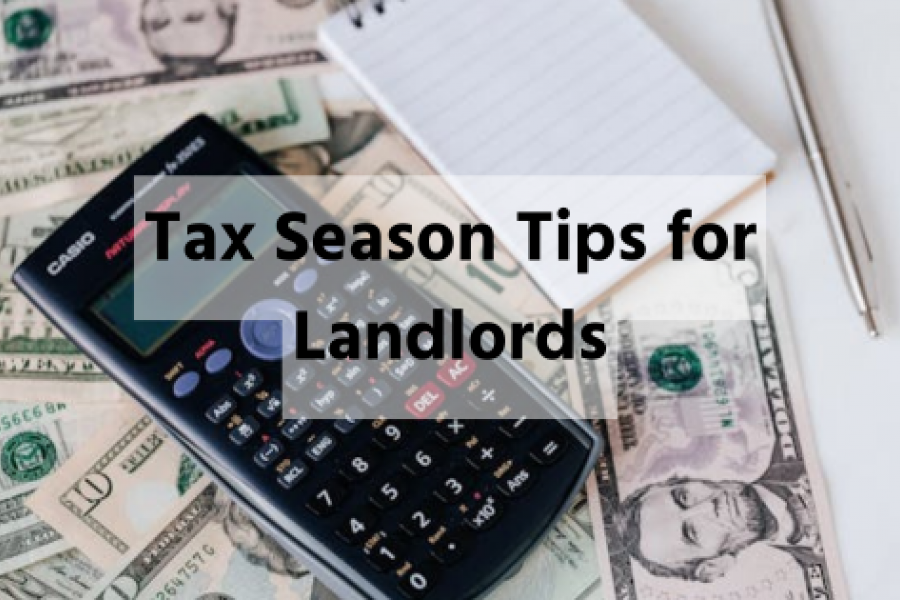
Key Takeaways
- Tax season can be a stressful time of year for anyone, especially including those with investment properties.
- Despite how intimidating it may be, there are many tips knowledgeable landlords can utilize to make it easier to manage.
- Partnering with a property management team can make things easier and reduce stress during tax season.
Learn how we can help you maximize your home’s potential.
Feeling overwhelmed every time tax season rolls around and wondering if you're truly maximizing your deductions as a landlord? You're not alone. Many landlords struggle to navigate the fine print of tax laws, missing out on valuable opportunities to reduce their liability. Whether you own one rental property or manage a growing portfolio, staying organized and informed can make a big difference when filing your returns.
In a face-to-face conversation, we'd tell you exactly what to watch out for and how to prepare ahead. That’s exactly what this article aims to do. If you're an investor working with Campus Connection Property Management in Eugene, Oregon, these practical tax tips are tailored to help you approach tax season with more clarity and confidence.
Tax-Smart Moves Every Eugene Landlord Should Know
Get ahead of the curve with these practical, time-saving tax tips designed specifically for landlords in Eugene. These eight strategies can help protect your income and simplify filing season:
Keep Detailed Records Year-Round
Keeping your documents organized throughout the year is one of the most helpful steps you can take as a landlord in Eugene. Track every rent payment, maintenance receipt, service invoice, and communication that relates to your property. This habit not only saves you time during tax season but also protects you in case the IRS requests proof of deductions.

Additionally, store digital copies whenever possible and label everything clearly by date and category. Staying consistent makes your filing process smoother and helps you avoid missing important tax-saving details.
Track All Deductible Expenses
Do you know exactly what you can write off on your taxes? Many landlords in Eugene miss out on valuable deductions simply because they forget to track certain expenses. Keep a list of what qualifies, including routine repairs, property insurance, mortgage interest, and fees paid to service providers.
Even smaller costs like advertising for new residents or mileage driven for property visits can count. The key is to track these expenses as they happen and keep all receipts. Staying proactive throughout the year prevents last-minute stress and helps lower your taxable income.
Depreciate Your Property Correctly
Property depreciation is one of the most powerful tools available to landlords, yet many don’t fully understand how it works. If you own a rental property in Eugene, you can typically depreciate the value of the building (not the land) over a set number of years.
This allows you to deduct a portion of the property’s value from your income each year, reducing your overall tax burden. A common mistake is not claiming depreciation at all, or miscalculating it. Work with a tax professional who knows real estate to make sure you’re handling it the right way.

Separate Personal and Rental Finances
Mixing personal and rental finances can create confusion fast, especially when tax season hits. Setting up a dedicated bank account and credit card for your rental property in Eugene is a simple step that makes a big difference. Why is this important? It keeps all income and expenses in one place, making it easier to track deductions and prove them if needed.
It also creates a clearer picture of your rental property’s actual performance. This small change helps you stay financially organized and saves hours of sorting when it’s time to prepare your return.
Plan for Estimated Quarterly Taxes
If rental income makes up a major part of what you earn in Eugene, it’s important to understand how and when to pay estimated quarterly taxes. These payments help cover what you owe to the IRS so you’re not hit with a large bill or penalties at the end of the year. Who should pay them?
Any landlord whose tax liability is expected to be over $1,000 annually. Mark your calendar with each due date and set aside a portion of your rental income regularly to stay prepared and avoid surprises.
Understand Repairs vs. Improvements
Knowing the difference between a repair and an improvement can affect how and when you deduct the expense. Repairs, like fixing a leaky faucet or patching a wall, are usually deductible right away. Improvements and renovations, such as adding a new deck or remodeling the kitchen, must be depreciated over time.

If you’re not sure how to categorize something you’ve done when renting out your Eugene property, document it thoroughly and check with a tax professional. Misclassifying these expenses is a common error, but a little clarity here can protect your deductions and keep your filing accurate.
Work With a Qualified Tax Professional
Tax rules can be confusing, especially when applied to rental properties. Working with a tax professional who understands real estate helps you stay compliant while making the most of every deduction you qualify for. In Eugene, it’s especially helpful to find someone familiar with Oregon’s tax regulations and how they relate to property income.
Ask questions, share your records, and let them guide you through the process. A good accountant isn’t just someone who files forms. They can be a valuable partner who helps you make smart financial decisions year after year.
Review Your Tax Strategy Annually
Don’t wait until tax season to look at your numbers. Every year, it’s a smart move to sit down and evaluate what’s working and what’s not. Did you maximize deductions this year? Is your record-keeping system helping or slowing you down? Did you buy or sell any property in Eugene that might affect next year’s return?
Making these reviews a yearly habit helps you stay ahead of changes in the tax code and identify new opportunities. This keeps you in control of your rental finances and better prepared for each tax season.
Final Check Before You File
Tax season doesn’t have to be overwhelming when you have the right support. For landlords in Eugene, Oregon, working with a team like Campus Connection Property Management can make a big difference. Their local expertise means they understand what investors in this area need to stay organized and compliant.
Whether you’re unsure about deductions or want to improve your record-keeping approach, it’s worth reaching out to discuss what works best for your property and financial goals. Let them guide you toward smarter tax planning.
